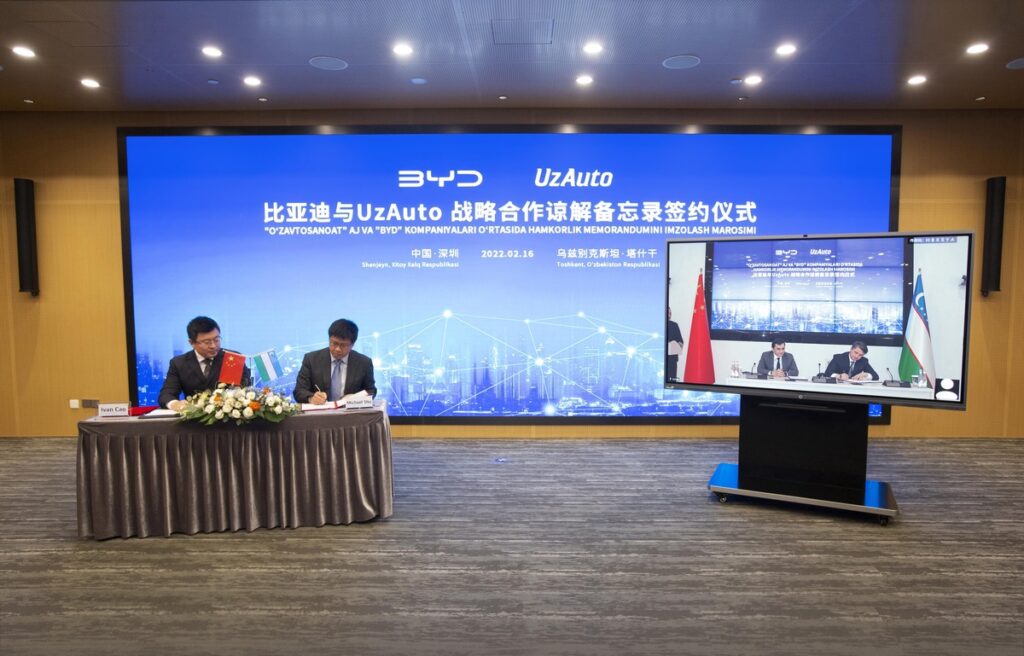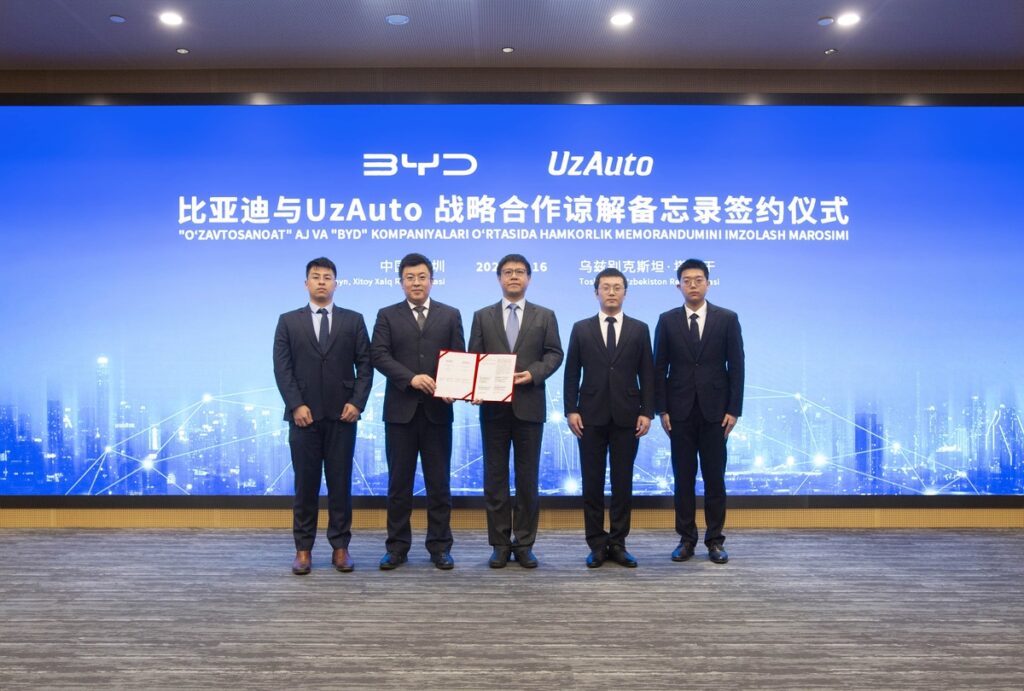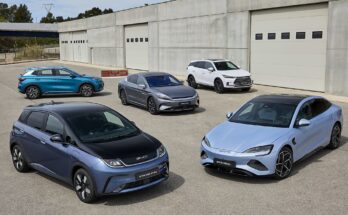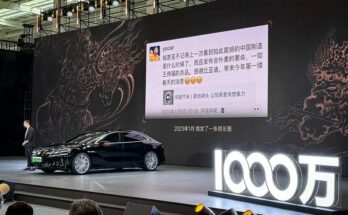Chinese EV giant BYD has set up a joint venture in Uzbekistan to bring vehicle production to the Central Asian country. BYD and Uzavtosanoat JSC (UzAuto) have signed an agreement to establish a JV that will focus on the production of new energy vehicles (NEVs) and components in Uzbekistan.
According to BYD, the joint venture will be based in Uzbekistan and will focus on the future production of several of BYD’s best-selling NEVs, including the DM-i super hybrid models and related parts.
Related: BYD Making a Dent in Elon Musk’s EV Empire
UzAuto, founded in 1994, is the largest auto manufacturer in Central Asia with full-cycle production and component manufacturing, a large local and inter-regional sales network, and an after-sales service system. UzAuto has a 95% share of the Uzbek automotive market. It is also expanding its exports to neighboring countries and has launched overseas production in Azerbaijan, according to a BYD press release.

“We are delighted to be working with UzAuto on this important milestone to expand the production of new energy vehicles in the Uzbekistan region,” said Michael Shu, General Manager and Managing Director of BYD Europe and International Cooperation Division.
Related: Toyota to Readjust its EV Strategy to Compete with Tesla and BYD
“Synergy of BYD technology with UzAuto manufacturing capabilities will promote the widespread use of new energy vehicles in Uzbekistan as well as in neighboring countries,” said Urmzakov Shavkat, Chairman of the Board at UzAuto.

In February 2022, BYD and UzAuto signed a memorandum of understanding, agreeing to study the feasibility of joint production of electric passenger cars and electric buses in this Central Asian country. There were no electric vehicle production plants in Uzbekistan, and the number of registered electric vehicles in the country was about 1,000, a report by the Russian media outlet Sputnik News. Uzbekistan imported 809 electric vehicles in 2021, which stands 6.2 times more than in 2020. The country stopped imposing customs duties or excise taxes on imported electric vehicles in July 2019, according to the report.
Source: CnEVpost

A computer animation professional with over 23 years of industry experience having served in leading organizations, TV channels & production facilities in Pakistan. An avid car enthusiast and petrolhead with an affection to deliver quality content to help shape opinions. Formerly written for PakWheels as well as major publications including Dawn. Founder of CarSpiritPK.com




